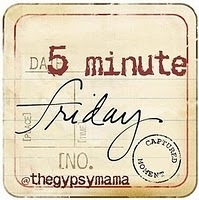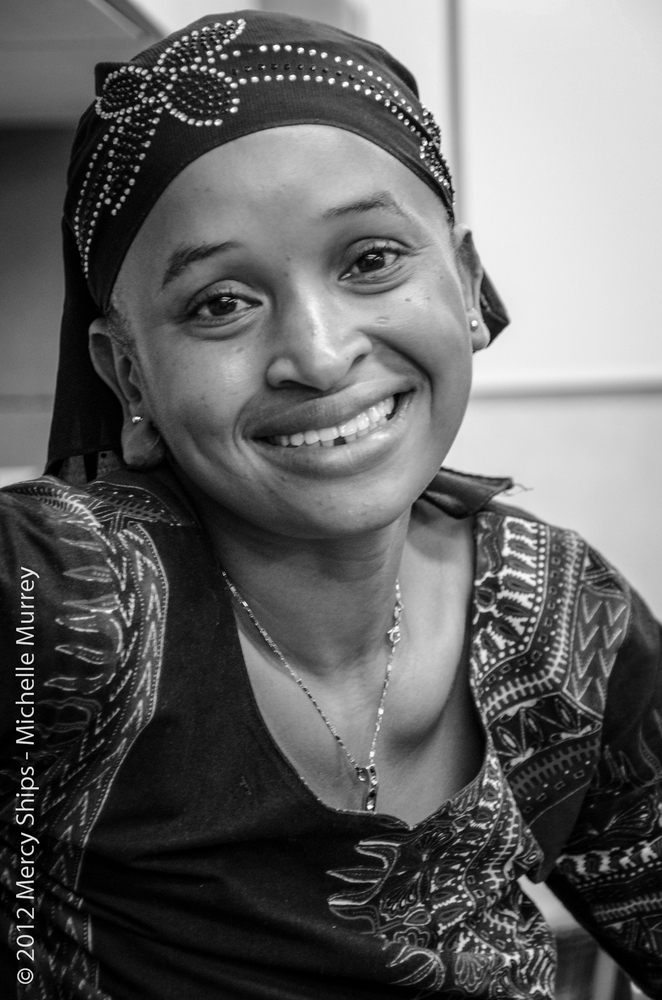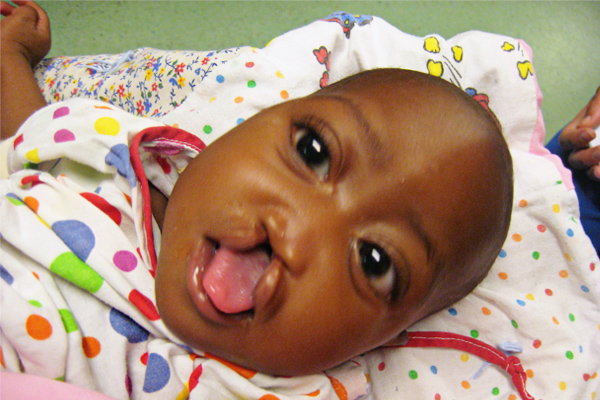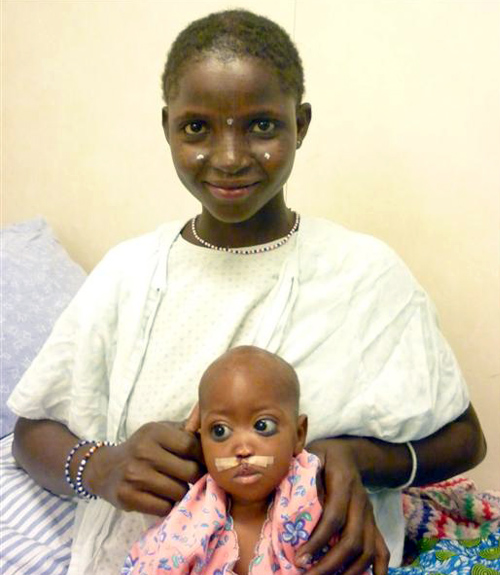Deb Louden, my Australian friend who is a nurse on the ship and who's sister was my running partner in Benin in '09, put this on her blog regarding screening day.
We moved out, under the cover of darkness in landrovers, bound for a school prepared and ready for thousands of people to walk through in search of fulfilled hopes and finally healing.
The people came. About 7000 of them, lining up along the road in the place we had prepared. The government closed off roads and the people waited.
As we opened the gates, we let the patients trickle in through a filtering system. The pre-screeners ask the patient why they have come and they decide, based upon what Mercy Ships surgeons can do, whether we can help them or not. It is not possible to describe how it feels to tell someone that their last hope of a normal life and healing, we cannot give them.
The 'no' patients are walked all the way to the back gate via the prayer station, always so reluctant to step outside the compound where they hoped so desperately to be helped. The 'yes' patients are escorted to registration and from there to History where I was standing, radio plugged in my ear to listen to all that was going on, answering questions of the nurses, sorting out problems and directing patient traffic.
My co-leader and I had an amazing team of nurses who worked so tirelessly throughout the day. But within the first hour of screening I helped out a nurse with the heartbreaking task of telling a young girl of about 12 years that the surgeons on our ship couldn't help her. She immediately burst into tears. My heart had already sunk to the depths of my chest when I had looked at her through my medical eyes. Her abdomen was massively swollen, she was thin and drawn, her skin colour not quite right. It was a stomach tumour the doctor had told them, but he would not help because they had no money to pay him. All because she lives in a world of very expensive or nonexistent medical care this one precious child might just miss out on life, if not for a miracle. So seeing her burst into tears just about dissolved me. The mother looked at me, explaining again, but we have no money and she needs help and now you are here. I looked her in the eye, hoping the compassion in my heart was written across my face, I'm sorry. Even as I write this tears stream down my face for this one child who needed help that we, as Mercy Ships, couldn't give. We can help so many, and I rejoice in that but who is here for this one? Who is here for the hundreds of others like my friend Ali met, facing this moment over and over again in the pre-screening line.
In moments like this it is not my strength that I stand on, for I do not have the strength to stand telling another that his hopes for us to bring healing are dashed.
In the midst of our busy rooms, I stood in the hallway, next to a line of patients and caregivers stretching to the end of the building and far behind me and around the corner. The three rooms I am running are full. One has 60 people waiting, the other two are full of nurses, translators (our day crew), patients and caregivers. I look towards the waiting area and see one little boy out of line. I can stare straight through his bowed legs. Although he is only small the legs are remarkably bowed, creating a little circle that comes together at his shoes.
I turn around with my back to the doorway and am face to face with a woman whose whole jaw is one great tumour, jagged teeth pointing towards the sky. After working on the ship in the maxillofacial ward for the last 18 months this sight is certainly not unfamiliar. I greet the woman and ask her name. It is Natasha and I tell her mine. In the next ten months she will be my patient on the ward and I will have the pleasure of knowing her.
I look down the line and see cleft lips on small babies, little children and even older adults. So many cleft lips in one day I have never seen.
It is this reason, bowed legs, mandible tumours, cleft lips and so many more that make my heart happy and full. Each of these patients will become a part of our lives. I say 'our' lives because the nursing and hospital team is really one big family. We share with abundant joy each other’s triumphs and pray with all our might for every patient.
At 4pm we had been working for 10 hours and after questioning one patient, they told us they’d been waiting outside the gate since 7am. They were tired too. I greeted one lady who had an orthopaedics abnormality and her little girl, who walked with windswept knees down the hall in her striped stockings with no shoes. The woman smiled at me, replying in French, we are tired. Yes I understood.
2pm they had closed the line off outside the compound to new people joining it, but it still held about 1,500 people. Hours later they were still coming through. Knowing we only had limited daylight left we switched to just taking patient details and giving them a screening card for a select date for their specialty. And still the patients kept coming. The whole hallway was filled with people, each holding their precious coloured mercy ships paperwork, a symbol of hope.
It really was ordered chaos but there was never a time out of order or dangerous, despite the number of people in one place. They waited, eager to move when they were called but otherwise willing to wait patiently, like no people in the western countries.
Darkness came and we kept giving out cards, seeing with the light of head-lamps, barely able to see the reason for the patient coming. They will return soon. Actually they already have. There are 60 max fax patients sitting on the dock waiting to be screened.
The numbers are overwhelming. 4236 people came through those gates and this was our first screening day. There will be more in other cities upcountry. More people will come looking for help. Sometimes I feel overwhelmed at that thought, not only for the sheer exhaustion of screening day but because there are so many.
They say you have to start with one, because every single one counts.
Natasha will be my one.










